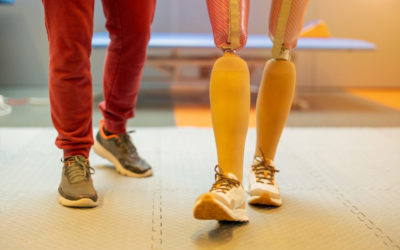Quick Hits
Daily brief research updates from the cognitive sciences

Sleeping well is essential to brain health
I’ve reported many times on different aspects of sleep and how important this is for health in general and for brain health in particular. You can go here for a short review of all the good things sleep does (and the bad things deprivation does!).
However, some people seem to manage perfectly fine on as little as four hours of sleep a night and this is what the researchers at the University of California wanted to know more about.
They have studied people with Familial Natural Short Sleep (FNSS) and identified five genes that contribute to this. And indeed, in this study, with mice it must be said, those with these genes seem to be immune to the degeneration and increased risk of neurodegenerative disorders that is normally associated with sleep deprivation.
This shows that the amount of sleep we need is genetically different, and those short sleepers can reap the benefits of a good night’s sleep in as much as half the time as others. However, be warned of convincing yourself that you are a short sleeper, if you are not, it will be bad for your brain.
But the takeaway is that sleep patterns are driven by genetics, and you will have to find out what works for you best.
My experience tells me that 7.25 hours is what I need, and that is what I try to get…with some natural variation of course. And more research (published after I had written the above) has shown how much this is. I seem to be pretty spot on with my sleeping habits!

Andy Habermacher
Andy is author of leading brains Review, Neuroleadership, and multiple other books. He has been intensively involved in writing and research into neuroleadership and is considered one of Europe’s leading experts. He is also a well-known public speaker speaking on the brain and human behaviour.
Andy is also a masters athlete (middle distance running) and competes regularly at international competitions (and holds a few national records in his age category).
Reference
Qing Dong, Nicholas W. Gentry, Thomas McMahon, Maya Yamazaki, Lorena Benitez-Rivera, Tammy Wang, Li Gan, Louis Ptáček, Ying-Hui Fu.
Familial natural short sleep mutations reduce Alzheimer pathology in mice.
iScience, 2022; 103964
DOI: 10.1016/j.isci.2022.103964
More Quick Hits
The Seven Habits to Reduce Dementia
We would all like to age well remaining cognitively active into older and old age. I have reported multiple times…
Mind Over Matter – Regaining Movement
This is the type of study and insight I like. Kind of amazingly simple but effective
Do We Lose Brain or Muscles First?
As we age things start to decline, we all know that – happens to the best of us…
Cravings for Fatty Food and the Gut-Brain Connection
Research hot off the presses is showing something interesting happening with our desire for fatty food….
How to Form Optimal Groups for Learning
There has been a long-standing debate and discussion in learning contexts for what is the best way to form groups for optimal learning when there are different abilities in those groups…
Extreme Temperatures Increase Hate Speech Online
I am sure we all know that feeling of getting more irritable when temperatures rise – well we now have evidence that…






